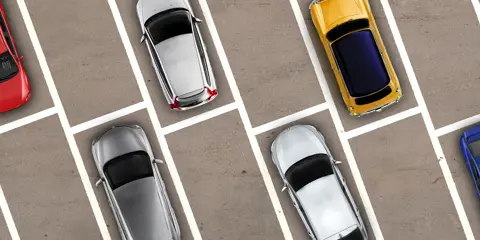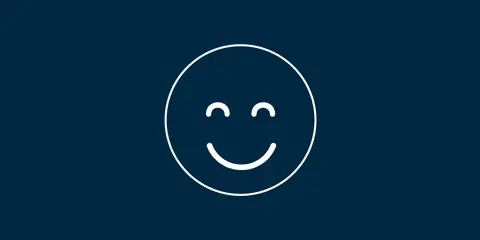-
Services
-
expand_more
Back
Services
-
-
expand_more
Back
Rates & Property
- Setting the Rates
- Revaluation and how it affects rates
- Rates Dates & Payment Options
- Changing your details
- Property Information Search
- Online Rates Payments
- Rates Rebates, Remission & Postponement
- Short-Term Visitor Accommodation
- Queenstown CBD Transport Rate for Queenstown Town Centre Properties
- Wastewater Rates for Cardrona
- Other Information
- Rates FAQs
-
-
expand_more
Back
Rubbish & Recycling
- How we recycle in the Queenstown Lakes District
- Cut your waste
- Commercial Services
- Public place litter bins and illegal dumping
- Rubbish & Recycling Collection
- Recycling Centres
- Transfer Stations
- Solid Waste Assessment
- Waste Minimisation Community Fund
- Waste Minimisation for Businesses
- Zero Waste Events
- Green and food waste
- Construction and demolition waste
-
-
expand_more
Back
Resource Consents
- Do I need a resource consent?
- Change, extend or surrender a resource consent
- Before you apply
- Apply for a resource consent
- Non-compliance & monitoring
- Notified consents
- Land Developments and Subdivisions
- Need help?
- Current resource consents
- eDocs
- FAQs
- Practice notes and guidance
-
-
expand_more
Back
Alcohol Licensing
- Alcohol Public Notices
- Find the right alcohol licence and apply
- Alcohol licence fee calculator
- Renew and/or vary your alcohol licence
- Manager's certificates
- Legal requirements for licence holders
- District Licensing Committee decisions
- ARLA annual report
- Alcohol-Free Areas In Public Places
- Have your say on alcohol licence applications
- All alcohol licensing forms
- Gambling Information
-
-
Do It Online
-
expand_more
Back
Do It Online
-
-
expand_more
Back
Registrations
- Register your Dog
- Register for a transfer or refund of dog registration fee
- Renewal for Campgrounds and Offensive Trade Registrations
- Activities in a Public Place - Registration/Application Form
- Register as a Homestay
- Register as Residential Visitor Accommodation
- Register for our public notification list
- Register to speak at Public Forum
- Register for Kerbside Collection Services
- No Spray Register
-
Community
Community
Ngā Hapori
- Manaaki
- Newcomers Guide
- Welcoming Communities
- Arts, Culture and Heritage
- Community Connect
- Citizenship Ceremonies
- Community Associations and Groups
- Community Funding
- Community Research
- Community Wellbeing
- Economic Development
- Emergency Management
- Energy Saving Tips
- Event Planning and Venues
- Māori Community
- Managing the risk of wildfire
- Population and Demand
- Summerdaze
- Tuia Programme
- Venue Hire
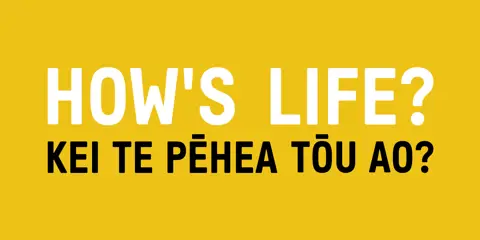
2025 Quality of Life Survey
Our annual survey is now open and your views are important!
-
Recreation
Recreation
Kā mahi a te rēhia
- Queenstown Events Centre
- Wānaka Recreation Centre
- Paetara Aspiring Central
- Swim
- Learn to Swim
- Golf
- Kids' Recreation
- Sport & Rec Venues and Contacts
- Courts and Fields
- Memberships - Join Today
- Join the Sport & Rec Team
- Responsible Camping
- Parks and Walkways
- Lakes and Boating
- Mountain Biking
- Horse Riding
- Splash Café
- Physiotherapy
- Playgrounds
- School Holiday Programmes
- This Is Sport & Recreation
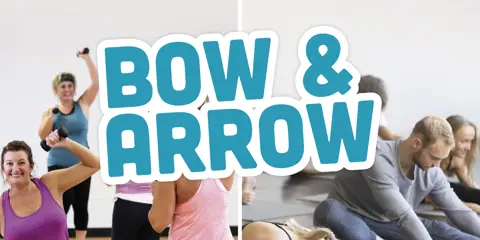
Bow & Arrow
A fitness programme in Arrowtown featuring strength and stretch elements. Book your spot now!
-
Your Council
Your Council
Te Kaunihera ā-rohe
- News
- Newsletter Archive
- Careers
- Consultations
- Council Documents
- Council Meetings
- Council Projects
- User Fees and Charges
- Climate Change and Biodiversity
- District Plan
- Elected Members
- Elections
- Media Centre
- Our Strategic Framework
- LGOIMA (information) requests
- Public Notices
- Sister Cities
- Fast-track Approvals Act
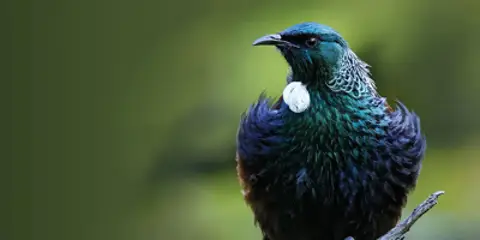
Climate & Biodiversity Plan
Read our latest plan which was adopted by Full Council on Thursday 31 July 2025.
-
expand_more
Back
Your Council
-
-
expand_more
Back
Council Documents
- Long Term Plan (LTP)
- Archived Agendas & Minutes
- Annual Plans
- Annual Reports
- Asset Management Plans
- Awarded Council Contracts
- Bylaws
- Capex Quarterly Update
- Monthly Reports
- National Policy Statement - Urban Development 2020 (NPS-UD)
- Policies
- Pre-election reports
- Queenstown Lakes Spatial Plan
- Reserve Management Plans
- Section 10A Reports
- Small Community Plans
- Strategies and Publications
- Submissions from QLDC
-
-
expand_more
Back
Council Projects
- Project Tohu
- Queenstown Town Centre Arterial
- McPhee Park Playground
- Blue-Green Network Plan
- Frankton Track Wastewater Upgrades
- Aubrey Road Wastewater Pipe Upgrades
- Luggate Water Upgrades
- Kingston Infrastructure Works
- Queenstown Town Centre Street Upgrades
- Way To Go
- Our Water Done Well
- Upper Clutha Wastewater Conveyance Scheme
- Shotover Wastewater Treatment Plant Stage 3 upgrades
- Short term approach for managing wastewater discharge
- Long term solution for Shotover Wastewater Treatment Plant
- Smart Water Meters Trial
- Environmental Monitoring System
- Lakeview Development
- Mount Iron Reserve Management Plan
- Project Manawa
- Wānaka Airport Certification
- Wānaka Airport Future Review
- Improving housing outcomes
- Queenstown Lakes Home Strategy
- Upgraded Two Mile UV Treatment Plant
- Frankton Road Watermain Upgrades
- Glenorchy Water Treatment Upgrades
- Upper Clutha Safety Improvements Programme
- Cardrona Valley Water Supply Scheme
- Schools to pool active travel route
- All-weather turf at Queenstown Events Centre
- Arthurs Point to Queenstown shared path
- 101 Ballantyne Road Masterplan
- Ballantyne Road Upgrade
- Cardrona Valley Wastewater Upgrade
- Glenorchy Reservoirs
- Frankton Campground
- Frankton Stormwater Upgrade
- Marine Parade Upgrades
- Mayoral Housing Affordability Taskforce
- Shotover Country Borefield and Treatment Plant
- Proposed Visitor Levy
- Ladies Mile Masterplan
- Recreation Ground Wastewater Pump Station and Rising Main
- Luggate Memorial Centre
- Te Kararo Queenstown Gardens
- Western Wānaka Water Supply Upgrade
- Shotover Bridge Water and Wastewater Main
- Te Tapuae Southern Corridor
- Glenorchy Marina Carpark
- Wānaka Lakefront Development Plan
- Travel Demand Management Programme
- Peninsula Bay Reserve Regeneration
- Merton Park Playground
-
-
expand_more
Back
District Plan
- Operative District Plan
- Proposed District Plan
- ePlans
- National Policy Statement-Urban Development (District Plan Amendments)
- Urban Intensification Variation
- Te Pūtahi Ladies Mile Variation
- Private Plan Change 1 - The Hills Resort Zone
- Upper Clutha Landscape Schedules Variation
- Priority Area Landscape Schedules
- Special Zones Review
- District Plan Maps
- A Guide to Plan Changes
- Planning Matters - Planning & Development Newsletter
- Services
- Rates & Property
-
Rubbish & Recycling
- How we recycle in the Queenstown Lakes District
- Cut your waste
- Commercial Services
- Public place litter bins and illegal dumping
- Rubbish & Recycling Collection
- Recycling Centres
- Transfer Stations
- Solid Waste Assessment
- Waste Minimisation Community Fund
- Waste Minimisation for Businesses
- Zero Waste Events
- Green and food waste
- Construction and demolition waste
- Building Services
- Resource Consents
- Environmental Health
- Transport and Parking
- Alcohol Licensing
- Animal Control
- Airports
- Environment and Sustainability
- Water Services
- Cemeteries
- Services A - Z
- Summer Services
- CCTV - Public Use
- Permits
Cut your waste
Whakahekea ō para
Help make landfill the last resort, and cut your waste with these simple ideas:
Quick links
-
The best way to help reduce the amount of rubbish we’re sending to landfill is to prevent waste in the first place.
That means saying no to unnecessary single-use items like plastic straws and thinking twice before you buy something new.
Top tips:
-
Refuse single use packaging, by carrying your own cups, drink bottles, take-away containers and reusable bags.
-
Get into DIY – there are plentiful recipes available for making your own cleaning products, beauty products or grocery items. The Rubbish Trip resources are a great place to start.
-
Keep your letterbox free of junk mail by putting a No Junk Mail sticker up. You can get these stickers for free at all Council offices or purchase one from a home supply store like Mitre10. Prefer an electronic version of the Yellow Pages? Don’t forget to opt out of the hard copy.
-
Remember to say no to plastic straws when buying a drink & BYO reusable alternative if needed.
-
Say no to wasteful freebies at events, parties and conferences.
-
-
The choices you make when you shop are powerful when it comes to cutting waste. Opt for items with the least amount of packaging, or packaging that can be easily recycled in New Zealand. Choose products that are designed to last or that can be repaired or made into something new after use.
Top tips:
-
Buy only what you need and when you do shop for new goods, buy items that are made to last and be easily repaired.
-
Choose reusable over single-use. Take your own reusable bread bag, produce bags, or containers to avoid single-use plastic packaging.
-
Go for the option with the least packaging. Most local bakeries, farmers markets and even supermarkets have sections with freshly baked goods and produce that are unpackaged. Buying in bulk is another great way to reduce the amount of packaging – starting or joining a co-op is a great way to achieve this.
-
Check what’s recyclable and what’s not in our district here. Where possible make the switch to products packaged in recyclable material. For example, we can't recycle coloured plastic bottles marked 1 (PET), like L&P or Sprite bottles. If you can’t do without an L&P or sprite, try a can or glass bottle – both materials can be infinitely recycled and some would argue it tastes better.
-
Choose recycled content. This will help to ensure supply and demand for recycled materials.
-
Think twice about biodegradable plastics. Learn more about these types of plastics here.
The Rubbish Trip have produced a super Zero Waste Shopping Guide for the Queenstown-Lakes District that provides some options for zero waste shopping.
Close -
-
It takes just 30 days to form a new habit so set a goal to carry your reusables, for example your cup and bottle, with you for the next month to make it part of your normal routine.
Many cafes even offer a discount on coffee if you bring your own cup and some cafes will now let you refill your water bottle free of charge. Check out the Refill NZ website for the list.
Top tips:
-
Get yourself a library card. This is a really great way to reuse books, music, and movies.
-
Keep a cup and bottle in the car, in your bag, and at the office.
-
Starting a family? Opt for reusable nappies and baby supplies.
-
Many single-use sanitary pads and tampons contain plastic and will potentially never break down in a landfill. Why not give reusable menstrual products a try? As well as being kinder to the environment, they’ll save you a lot of money in the long run. Read more here: Reusable Menstrual Products — Waste Free with Kate & Co
-
Buy second hand. You'll save a lot of money and reuse something someone else didn't want.
-
Get creative and find ways to repair, upcycle and reuse objects that you might otherwise throw away.
Close -
-
Don't need it anymore? Find someone who does! Seek out your local reuse shop to donate your goods, or re-sell items online.
There is a fantastic reuse shop at Wanaka Wastebusters and multiple Salvation Army Family Stores across the district that welcome good quality donations.
Close -
New Zealand families waste about $644 each year on food which is thrown uneaten into the rubbish bin.This adds up to a staggering $1.17 billion for the whole country.
That’s 157,398 tonnes of edible food going to landfill and generating greenhouse gases.
We're proud to be part of the national Love Food Hate Waste NZ campaign which aims to turn this around, by inspiring and enabling people to waste less food.
For practical tips on how to reduce your own food waste and save money visit the Love Food Haste Waste website.
Close -
Compost your unavoidable food scraps and green waste back into a reusable resources that will replenish your soil.
We fund the Dr Compost programme to help get you started. Local composting guru, Dr Compost, can help you discover which system could work best for you or help fine-tune your existing composting system.
You can get free advice from Dr Compost at events, workshops, or on Facebook. For more information visit the Dr Compost Facebook page or download the online resources. You can also email your questions to:
drcompost@wanakawastebusters.co.nz
Subsidised Bokashi Bins
Subsidised Bokashi Bins can be purchased at Council offices or Wanaka Wastebusters.
They can be purchased as a single unit or in sets of two at cost price (maximum of four buckets per person/business).
Single unit price - $28 inclusive of GST
Set of two price - $56 inclusive of GST (normally $112.00)
(Each bucket receives a free bag of compost zing as part of the cost).Bags of compost zing can also be purchased at cost price of $6.00 per bag inclusive of GST.
Please note that the subsidised price only applies to Queenstown Lakes residents and you will be required to provide contact details/proof of address on purchase.
Subsidised Worms
If you're keen to try worm farming, we subsidise the purchase of worms.
- $30 for 1kg / approximately 4,000 worms (normally $55).
There is a $10.00 courier charge (extra for rural delivery).
To purchase the worms get in touch with Jacqui at Central Wormworx (2024) Ltd, Cromwell.
Phone 021 132 2964 or email:
Close
wormworx1@gmail.com -
There are some innovative groups doing exciting work to reduce waste in our district. They hold regular events including waste free fairs, movie nights, workshops, speakers and events.
Close
Plastic Free July
Plastic Free July is a global movement that helps millions of people be part of the solution to plastic pollution. Plastic Free July isn’t about a handful of people doing zero-waste perfectly, it's about millions of people doing zero-waste imperfectly. Even by eliminating one type of plastic from your daily routine, you can make a difference.
Plastic free habits don't have to be limited to just the month of July. The Plastic Free July website provides resources and ideas to help you (and millions of others around the world) reduce single-use waste everyday at home, work, school, and even at your local cafe.
How you can take part in the challenge
Start by heading over to plasticfreejuly.org to take the Pesky Plastics Quiz and understand your current use of single-use plastic
Once you have identified which plastics you can #choosetorefuse from your daily life, sign up for the challenge and make a plastic free pledge. The Plastic Free July website has heaps of resources to help you with the challenge.
For anyone wanting to find stores near them that offer zero waste options for common everyday groceries etc., to help you on your PFJ mission, check out The Rubbish Trip Regional Zero Waste Guides that cover the whole of NZ, including the Queenstown-Lakes District.
For other resources, tips and events, keep an eye on the following Facebook pages:
Videos on how to cut your plastic use
Simple Swaps:
Simple Swaps Clingfilm:
Simple Swaps Bathroom:
How to avoid single-use packaging:
How to avoid four plastics you can't recycle in NZ:
How to avoid plastic #3:
How to avoid plastic #4:
Another way to avoid plastic #4:
How to avoid plastic #6:
How to avoid plastic #7:
Stay up-to-date
Sign up to our newsletters and stay up-to-date with the latest news, events & information in the Queenstown Lakes District.

